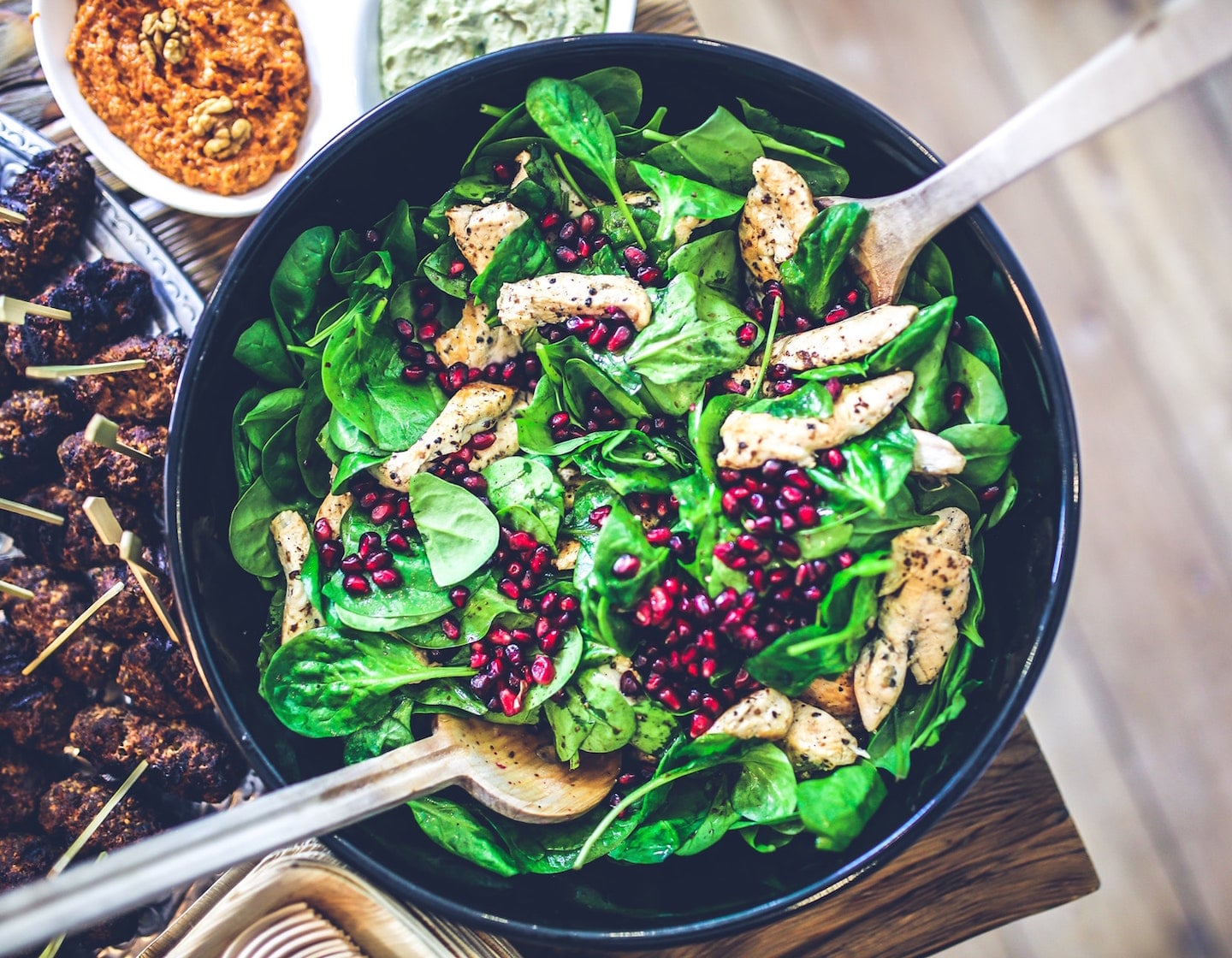
They ain’t sexy, but hormones have a huge impact on our moods and physical wellbeing. Here are a nutrition expert’s tips to help women regulate their hormones
For as long as I can remember I have struggled with my hormones. Since starting my period when I was 15, I suffered from acne, cramps, ovarian cysts, PMS, heavy, painful periods, UTIs, candida, constipation, mood swings, anxiety, then in the later years, to more serious issues from Endometriosis like Fibroids, all ultimately culminating in having a hysterectomy!
Back then I had no idea why it was happening to me, I just kind of just accepted that I was unfortunately ‘blessed’ with these issues, or a body that just wasn’t wanting to play the game the way a body is supposed to.

Well, since then I have learned soooo much about how the body actually works; how our hormones work, and how much of an impact it all has on the endocrine system.
Read more: Doctor’s Advice on Perimenopause: Symptoms and Treatment
So let’s start first up with our sex hormones – the main ones I will cover are estrogen and progesterone (there are others as well, but I will focus on these two). Estrogen is predominantly made in our ovaries, but did you know that it is also made from our adrenals and our body fat?
So, having more body fat = producing more estrogen! You might think that’s a good thing, but too much estrogen can cause a multitude of issues for women whether you are still menstruating, perimenopausal, or menopausal! I know, you’re probably thinking that you won’t be making estrogen when you have menopause, but because estrogen is still made from the body fat and adrenals, there are extra stores still available.
The issue with estrogen, though is that we DON’T want it to be in excess — or what is termed “estrogen dominant”. What this means for most women who are still menstruating is that each month we make estrogen naturally from our ovaries. That is great, natural and how its’ meant to be… BUT!
It is important first off to understand the role of our liver. One of the major roles the liver plays is the process of detoxification of everything that the body takes in, consumes, absorbs, inhales … and then eliminates from the body once it’s done its job of detoxification.
There are two phases of detoxification – so when a substance like estrogen gets to the liver, it goes through the first phase of detoxification where it is slightly ‘changed’. It then needs to go through the second phase of detoxification, but more often than not for many of us, this phase becomes congested due to an excess of processed foods, environmental toxins and chemicals, alcohol, toxic household and skincare products and more. Essentially then, due to this congestion the liver has to find a way to still eliminate these substances, so it ends up ‘recycling’ this slightly changed form of estrogen BACK into our bloodstream!! And it is THIS slightly changed form of estrogen that has been found to be linked to certain reproductive and breast cancers, and is what contributes to a woman being ‘estrogen dominant’.

To prevent this from happening, it is vital for us to support our liver. We want to ensure we are minimising our exposure to toxic products, chemicals, BPAs (plastics), processed foods and drinks, and alcohol so that we reduce the load that we put on the liver to detoxify these. Then we also need to stimulate those phase-2 detoxification pathways by consuming foods that form part of the Brassica family of vegetables, such as Broccoli, Cauliflower, Cabbage, Kale and Brussels Sprouts.
And that is just from one hormone! Let’s take a look at progesterone now:
Progesterone is made in small amounts by our adrenal glands. In the second half of our cycle, after ovulation, it’s made by the lining of the uterine wall, but the thing is, many women have anovulatory cycles (ie, you don’t ovulate sometimes). I was one of them! So some months you may not make any – or very tiny amounts of -progesterone, relying heavily on the adrenals to produce it.
So why isn’t it enough just from the adrenals then, you might ask? Well, our adrenal glands are also what produce our stress hormones, namely adrenaline and cortisol. If we are highly stressed (which most modern day women tend to be!), we are constantly churning out A LOT of adrenaline, and eventually a lot of cortisol, too.
This then impacts the amount of progesterone being made, as the body reads these signs of stress hormones to mean that ‘our life is in danger’, so it shuts down the production of progesterone to protect us and to prevent the body from falling pregnant. This is how intelligent our bodies are!

So in order for our body to get the message that it is ‘safe’ and not in danger, so that it DOESN’T churn out adrenaline and cortisol, and instead allows good progesterone production, we have to find ways of turning down those stress hormones. How do we do this? Quite simply – breathe.
Well, to be more precise, we need to breathe deeply (diaphragmatic breathing) and spend more time exhaling out. Let me give you an example…
When you breathe in, you need to breathe into your belly, expanding it out for a count of 7. Hold your breath for 4 counts, and then exhale for 11 counts! This almost instantly reduces cortisol production! Do this for 20 breaths daily and you will find marked improvements in your health, mood, weight, and overall wellbeing!
On top of all that, progesterone is a natural anti-depressant, a strong anti-anxiety agent and a diuretic, so having good levels of this hormone is crucial to our overall health and wellbeing.
As you can see balancing some of our hormones especially our sex hormones can be a pretty tricky situation, whether you are still menstruating, in perimenopause or menopause. Regardless of your status, the best way to keep our sex hormones happy and well balanced is by looking after our liver and our adrenals!
Read more: How good gut bacteria affects weight and boosts energy






 View All
View All




 View All
View All









 View All
View All







